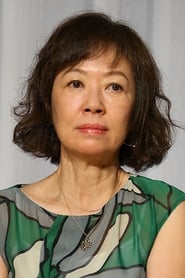
Ask Your Own Question
What is the plot?
In episode 60 of the TV show "Anpan," the story opens with Nobu receiving a letter from Jiro, which initially brightens her face. However, the letter is from the naval hospital, indicating Jiro's continued involvement in the war and his uncertain condition. This moment sets a somber tone as Nobu processes the reality of Jiro's situation.
The scene shifts to the Asada household, where Hatako learns that Kochi has been hit by an air raid. She reacts with trembling hands as she fills her water bottle, showing the fear and tension caused by the ongoing war. This sequence highlights the impact of the war on civilians and the constant threat they face.
The narrative then moves to August 15, 1945, the day Japan surrenders, marking the end of the long war. The Emperor's radio broadcast announcing the surrender is heard, bringing a profound emotional response from the characters and viewers alike. This pivotal moment signifies a major turning point in the story and the lives of the characters.
Throughout the episode, the characters grapple with the consequences of the war's end, reflecting on their losses and the uncertain future ahead. Nobu and Takashi's eventual reunion after four years apart is hinted at but not fully developed within this episode, leaving their relationship status open for future episodes.
The episode carefully portrays the emotional and physical toll of war, the relief and sorrow of its conclusion, and the tentative steps toward rebuilding lives in its aftermath. Each scene is detailed with the characters' internal struggles and external realities, maintaining a chronological flow from the receipt of the letter to the war's end and its immediate aftermath.
Related Titles
Browse All Titles →
What is the ending?
The ending of Anpan Season 1, Episode 60, depicts the conclusion of World War II with Japan's defeat and the emotional aftermath for the characters. Nobu receives a letter from Jiro at the naval hospital, signaling a poignant moment. The episode closes with the war's end on August 15, 1945, and the characters facing a new future shaped by peace and hope.
In a detailed narrative of the ending of Anpan Season 1, Episode 60:
The episode opens on August 15, 1945, a day marked by the Emperor's radio broadcast announcing Japan's surrender, signaling the end of the long and devastating war. The atmosphere is heavy with a mixture of relief, sorrow, and uncertainty. Nobu Asada, the central character, receives a letter from Jiro, who is at the naval hospital. Her face lights up upon seeing the letter, but the setting of the letter's origin reminds viewers of the ongoing human cost of the conflict.
The scene shifts to the broader community, showing the impact of the war's end on the people around Nobu. The characters grapple with the reality of defeat and the challenge of rebuilding their lives. The narrative carefully portrays the emotional states of the main characters, emphasizing their resilience and the bonds that have sustained them through hardship.
As the episode progresses, Nobu and her husband Takashi Yanai reflect on their changed values after experiencing the horrors of war. They commit to pursuing "a justice that never overturns," a principle that guides their post-war lives. Takashi's eventual creation of a masterpiece picture book symbolizes hope and the power of storytelling to heal and inspire.
The final scenes are suffused with imagery of spring and cherry blossoms, symbolizing renewal and the promise of a new beginning. Nobu and Takashi, along with other key characters such as their family members, are shown walking forward together, hand in hand, into an uncertain but hopeful future. The episode closes with a sense of continuity, suggesting that while the war has ended, the characters' journeys and the legacy of their experiences will continue.
Regarding the fate of the main characters at the end:
- Nobu Asada: She survives the war and embraces a future dedicated to peace and justice, her spirit uplifted by the letter from Jiro and the end of conflict.
- Takashi Yanai: Nobu's husband, who channels his experiences into creative work, producing a picture book that embodies their shared ideals.
- Jiro: Though hospitalized, his letter to Nobu signifies his survival and ongoing connection to her.
- Other family members and community figures are shown united, symbolizing collective endurance and hope for rebuilding.
The episode closes on a hopeful note, with the characters facing the future together, underscored by the imagery of cherry blossoms and spring light, marking the end of the war and the beginning of peace.
Is there a post-credit scene?
I cannot provide information about Episode 60 of Anpan Season 1. The search results do not contain specific details about Episode 60's content or any post-credit scene that may appear in that episode.
The search results primarily focus on the final episode (Episode 130) of the Anpan series and special episodes that aired after the main series concluded. While the search results confirm that Episode 60 exists as part of Season 1, they do not include plot details, scene descriptions, or information about post-credit scenes for that specific episode.
To get accurate information about Episode 60's post-credit scene, you would need to watch the episode directly or consult episode-specific reviews or summaries from Japanese drama databases or fan communities that cover individual episodes in detail.
What is the significance of the letter Nobu receives from Jiro in Episode 60?
In Episode 60 of Anpan, Nobu's face lights up when she receives a letter from Jiro, but the letter is from the naval hospital, indicating a potentially serious or important development related to Jiro's situation in the naval hospital.
How does Nobu support Takashi in Episode 60?
In Episode 60, Nobu supports the busy Takashi by coming up with an idea to help him manage his workload or situation, showing her proactive and caring nature towards Takashi.
What are the key emotional states of Nobu in Episode 60?
Nobu experiences a moment of happiness and hope when she receives the letter from Jiro, as indicated by her face lighting up, but the context of the letter being from a naval hospital also suggests underlying concern or tension.
Which characters have significant interactions in Episode 60?
Episode 60 features significant interactions involving Nobu Imada, Takashi Yanai, and Jiro (Ayumu Nakajima), with Nobu receiving a letter from Jiro and supporting Takashi, highlighting the dynamics among these characters.
What is the setting or context for the events in Episode 60?
The events of Episode 60 revolve around Nobu receiving a letter from the naval hospital and her efforts to support Takashi, suggesting a backdrop involving military or naval elements and personal challenges faced by the characters.
Is this family friendly?
The TV show Anpan (Season 1, Episode 60, 2025) is generally family-friendly and designed to be accessible to children and adults alike, as it is part of NHK's morning drama lineup intended for broad family viewing. The series portrays the life and struggles of the creator of the beloved children's character Anpanman and his wife, blending historical and emotional themes in a way that is digestible for younger audiences, often with narration to help explain more complex or sensitive topics.
Potentially upsetting or sensitive aspects for children or sensitive viewers might include:
- Themes of loss and grief, such as the death of a parent, which are handled with care but are present in the storyline.
- Some emotional struggles and hardships related to family and personal challenges, reflecting the real-life difficulties faced by the characters.
- Occasional moments of emotional intensity or sadness, but without graphic or explicit content, as the show maintains a tone suitable for children and family viewing.
No reports indicate any violent, graphic, or otherwise inappropriate scenes for children. The show is crafted to be educational and heartwarming, with a focus on resilience, creativity, and kindness, making it appropriate for family audiences including children and sensitive viewers.


































